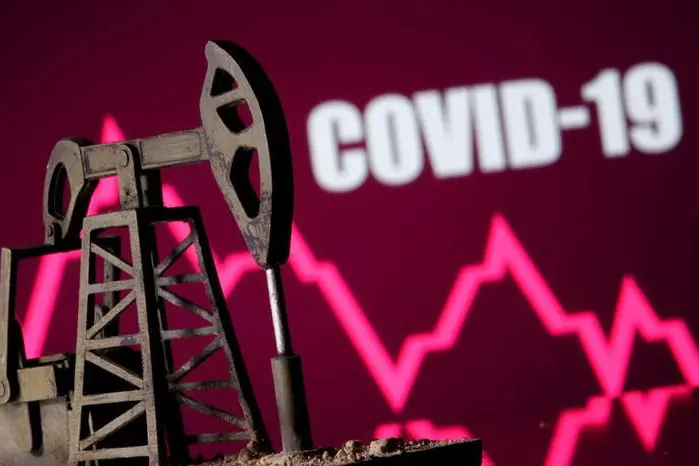PHOTO
GCC banks will see significantly reduced revenue and credit growth in 2020 as they face an earnings shock from the oil price drop and Covid-19 pandemic, S&P Global Ratings said.
As the region's lenders focus on preserving asset quality rather than business expansion, the pandemic will halt growth at both Islamic and conventional banks this year as the sharp decline in oil prices, accelerated real-estate price corrections in some markets, and drop in vital nonoil economic sectors will pressure banks' earnings, the ratings agency said.
"The sharp drop in oil prices and measures implemented by regional governments to contain transmission of the coronavirus will take a toll on important sectors such as real estate, hospitality, and consumer-related. Under our base-case scenario, we assume that these measures will be relatively short lived and forecast a gradual recovery in nonoil activity from third-quarter 2020," said S&P Global Ratings credit analyst Mohamed Damak.
"However, the severe shock could cause irreparable damage to some parts of the nonoil economy. Furthermore, if the recovery takes longer than we expect, GCC banks could feel greater pressure," Damak concluded.
Most central banks in the GCC have already come up with stimulus packages to help the banking system withstand the economic fallout of the pandemic. The Central Bank of the UAE on Sunday doubled the size of its stimulus package to Dh256 billion and allowed banks and finance companies in the country to extend deferrals of principal and interest payments to their customers until December 31, 2020. The regulator also took another major step, halving the reserve requirement for demand deposit of all banks from 14 per cent to seven per cent in order to increase liquidity in banking sector.
In its report, S&P said Islamic banks are likely to see a greater effect on asset-quality indicators "since they typically have a higher proportion of exposure to real estate and cannot charge late payment fees. Stimulus and support measures from GCC governments will help banks navigate the challenging environment but likely not resolve structural problems unless we see stronger intervention."
According to Moody's, the immediate effect of a sustained period of lower oil prices would be on the liability side of the balance sheets due to reduced deposit inflows from government and government-related entities. "A prolonged period of low oil prices risks constraining existing public spending plans which will undermine confidence and pressure economic growth. Economic growth and consequently credit growth in the GCC has already slowed since oil prices began to moderate in 2014. A more protracted period of lower prices will strain asset quality," said Ashraf Madani, senior vice president and analyst at Moody's.
Moody's has said a sizable cut in interest rate would reduce UAE banks' net interest margins) because gross yields earned on loans will decline more than the funding cost paid on deposits, and because the rate cut is unlikely to materially increase credit volumes in the current difficult operating environment.
In March, S&P revised its outlooks of some UAE banks including First Abu Dhabi Bank, Abu Dhabi Commercial Bank, Mashreqbank, Sharjah Islamic Bank and National Bank of Fujairah to negative, while affirming long- and short-term issuer credit ratings on these entities.
S&P said it expects a significant slowdown in lending growth in 2020. "Although growth rates last year were almost the same as 2018, GCC conventional banks saw faster increases than Islamic banks. "In 2020, we expect slower organic and nonorganic growth, with Islamic and conventional banks seeing similar rates of 2-3 per cent.
"We project average real GDP growth for the six GCC countries will slightly accelerate in 2020 compared with 2019, but this will be primarily spurred by higher oil production. With the significant decline in oil prices - our assumption for 2020 is now an average of $30 per barrel, down from $60 at the start of the year - and government measures to contain the spread of Covid-19, we think that nonoil growth will decline. This will result in fewer growth opportunities for banks. We also expect banks to focus more on asset-quality indicator preservation than generating new business," said the report.
Copyright © 2020 Khaleej Times. All Rights Reserved. Provided by SyndiGate Media Inc. (Syndigate.info).





















